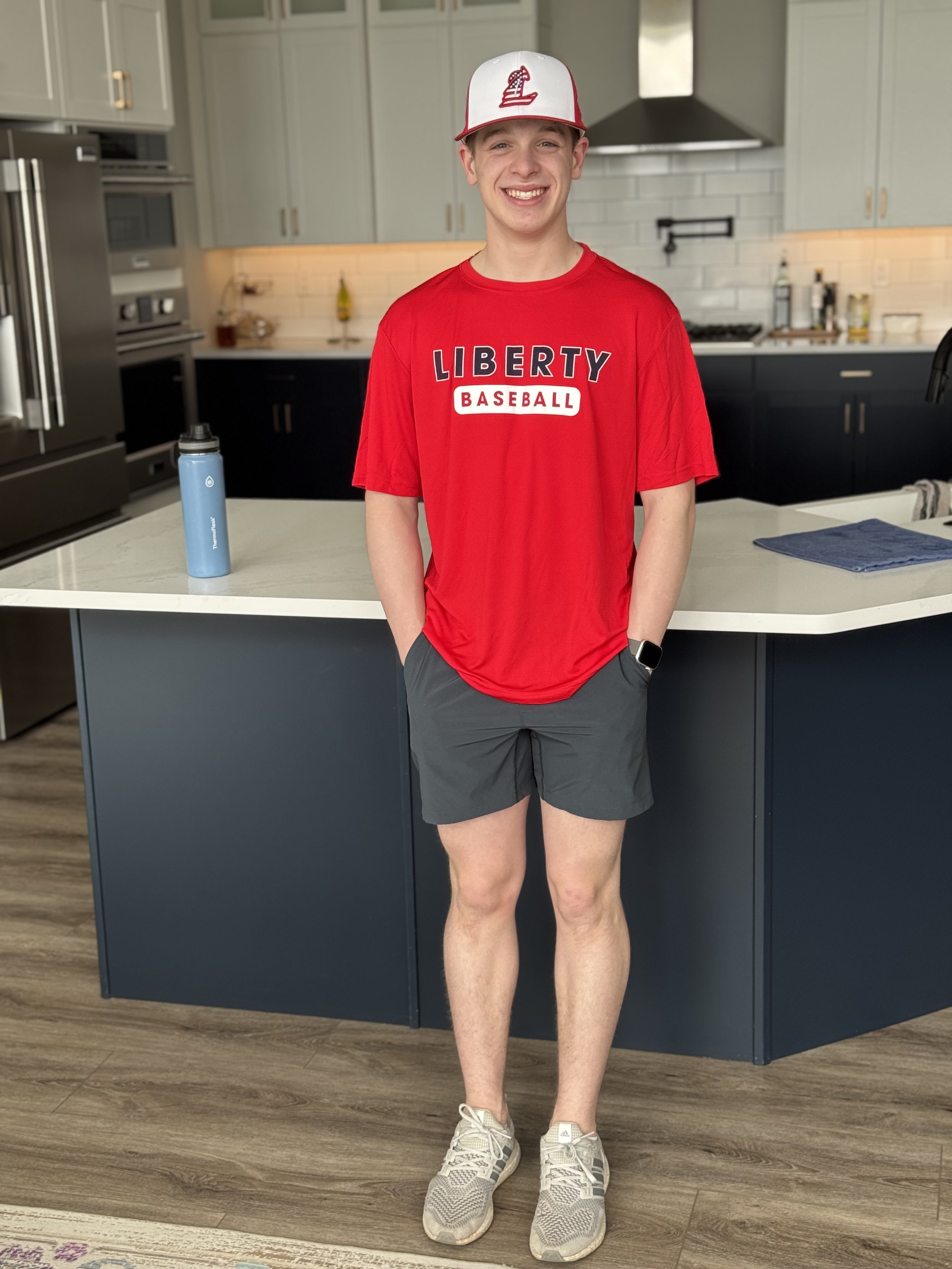I feel like this deserves a spot on the blog….
It happened... 3rd time’s a charm, I guess?! Let me give you a "little backstory" on why this is a big deal in our house:
Mason played rec ball as a kid but never really got into it. Took a break, stepped onto the mat (martial arts), and eventually got back into rec ball.
When we moved to California, he found a travel ball team and decided he was ready to take the sport more seriously. When we came back home, he kept at it—playing for different travel teams.
If I’m being honest? He wasn’t great. He knew it. We knew it. LOL. But that didn’t stop him from showing up—even when some of his teammates weren’t exactly kind to him.
After seeing how competitive travel ball was here, Mason realized he had some work to do—and he didn’t shy away from it. He focused on three key things:
1️⃣His Attitude: Mason was letting the words of others—and how he showed up in the game—affect his mood.
This was a mix of growing up, learning to manage some ADHD tendencies, and finding the right teammates and coaches.
We’ve come across plenty of coaches who shouldn’t have been coaching... but that’s a rant for another day—one with so many layers that it still makes me a little angry just thinking about it.
Instead of dwelling on that, we focused on what Mason could control: His attitude. His responses. His reactions.
Thankfully, this past season, he landed on a great team with a solid coach. And just to cover all of our bases (haha, get it?), we brought in a life coach who focuses on mindset for athletes — and that’s been a total game-changer.
2️⃣ His Hitting: After freshman tryouts, when he didn’t make the team, Mason came home and said, “What can I do?” That’s when we found CJ, his hitting coach since 2023.
3️⃣ His Pitching: After sophomore tryouts, when he didn’t make the team again, Mason got clear on where he wanted to spend 100% of his energy and decided to add pitching to his skill set. So on top of hitting, he joined the pitching program at P3.
He’s put in the work—mentally and physically—not because he’s chasing the big leagues, but because he genuinely loves the game.
And this year? That dedication finally paid off.
The head coach pulled him aside and told him he’d seen Mason’s growth over the last couple of years. He gave Mason credit for continuing to show up—even when he didn’t make the team, when most kids would have quit. (At this point, Mason’s brain went straight to “Great, I’m getting cut again”—but nope.)
Instead, the coach offered him a spot on the JV team.
We don’t know his official position yet since things have shifted a bit since that conversation, but either way, his effort didn’t go unnoticed—and for that, Mason is beyond grateful.
What blows me away the most is that Mason took each roadblock and turned it into a new opportunity for growth. At his age? I would have been like, “Yeah, I’m good... I give up.”
We are incredibly proud of his resilience, his hard work, and his love for the game.
This journey has been tough at times, but Mason’s story is proof that showing up—even when it’s hard—matters.





